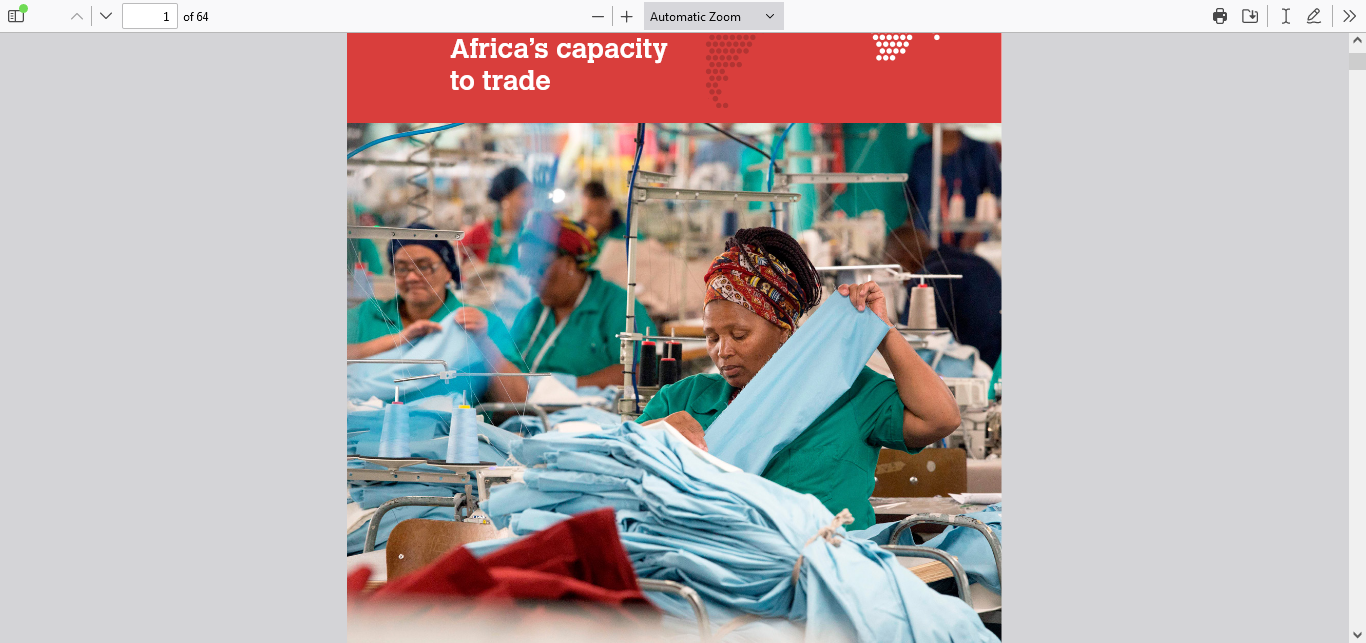African trade in goods and services has amounted to around 3 per cent of global exports and imports on average. In 2019, African countries recorded exports of US$ 462 billion and imports of US$ 569 billion in merchandise trade. This constituted a fall of 3 per cent onaverage compared to 2018. Between 2005 and 2019, Africa’s commercial services exports nearly doubled in value. However, this picture is incomplete; the continent’s exports are
dominated by one region. North Africa has accounted for about a third of all African goods and services trade, despite comprising only five of the continent’s 55 countries. However, the share of exports contributed by sub-Saharan Africa has been steadily increasing and accounts for 70 per cent of all African goods and services exports.
The WTO has made broad and diverse efforts to support trade development in Africa over the last 10 years. For example, WTO members, through the different bodies that comprise the organization, and the WTO Secretariat have implemented a broad range of agreements, decisions and technical assistance programmes, ranging from trade facilitation to government procurement regulations. Through technical assistance programmes and support
for economic diversification and industrialization on the African continent, the WTO has played a role in fostering economic transformation.
The WTO has made broad and diverse efforts to support
trade development in Africa over the last 10 years.
The WTO has supported trade development in Africa through its leadership on Aid for Trade. Since the launch of the initiative in 2006, donors have disbursed US$ 451 billion in official development assistance to help developing
countries build trade capacity and infrastructure. US$ 163 billion of this amount has gone to African countries, with US$ 16.9 billion being disbursed in 2018, representing a 180 per cent increase from the 2006 baseline.
The Aid for Trade initiative focuses on economic diversification as being key to development; in the 2019 Aid for Trade monitoring exercise, 97 per cent of African respondents pointed to economic diversification as a priority.
The Aid for Trade Work Programme for 2020-21 reiterates the importance of investments in digital connectivity, which have become more important as a result of the COVID-19 pandemic. Development financiers have also introduced new aid programmes, including a US$ 160 billion World Bank fund to address the economic impacts of the COVID-19 pandemic and a US$ 10 billion COVID-19 Response Facility from the African Development Bank (AfDB).
The Trade Facilitation Agreement (TFA) expedites the movement, release and clearance of goods and establishes measures for effective cooperation between economies to establish customs compliance. The TFA entered into
force on 22 February 2017 after two-thirds of the WTO membership completed their domestic ratification processes. Studies show that full implementation of the TFA could reduce trade costs by an average of 14.3 per cent and boost global trade by up to US$ 1 trillion per year, with the largest gains in the poorest countries.
For the African region, the reduction in trade costs would average 16.5 per cent, with many countries facing reductions of between 15.8 and 23.1 per cent. Across coastal and landlocked Africa, reductions would average
16.8 per cent and 15.7 per cent, respectively.1 This is significant, since the central African region has some of the highest trade costs in the world



